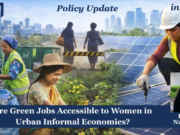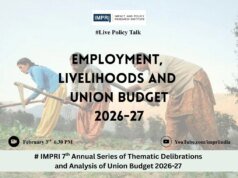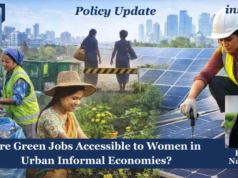TK Arun
India embraces its need for American intelligence and weapons to keep China at bay. At the same time, India does not want to be obliged to the US so much that it comes under its thumb. India is better off with a multipolar world, with multiple power centres.

If the US wants India to abandon its strategic goals and dilute national security for the sake of a few dollars more, India must stand its ground.
Donald Trump wants to resume talks with Narendra Modi, hours after asking the European Union to levy 100 per cent tariffs on India and China for enabling Russia’s war on Ukraine. The US president posted on Truth Social, the social media platform he owns: “I am pleased to announce that India, and the United States of America, are continuing negotiations to address the Trade Barriers between our two Nations. I look forward to speaking with my very good friend, Prime Minister Modi, in the upcoming weeks. I feel certain that there will be no difficulty in coming to a successful conclusion for both of our Great Countries!”
In response, Prime Minister Modi wasted little time in putting up his own post on Truth Social: “India and the US are close friends and natural partners. I am confident that our trade negotiators will pave the way for unlocking the limitless potential of the India-US partnership. Our teams are working to conclude these discussions at the earliest. I am also looking forward to speaking with President Trump. We will work
Navarro’s tirade
The infelicity of “both of our people” apart, Modi’s response gushes too much. The problem is not that Trump is, to say the last, changeable. He might choose to invite Modi for a cup of coffee at the White House along with Pakistan’s military chief Asim Munir, who has been America’s state guest twice in the recent past.
Republican senators are proposing legislation to levy a 25 per cent tax on the cost of outsourcing work to India. The MAGA base wants to get rid of H1B visas, under which many Indians secure work in the US. The Trump administration speaks with a forked tongue. One of those tines is called Peter Navarro.
Trump’s trade counsellor Navarro continues to rant and rave against India, calling the Ukraine conflict “Modi’s War”, labelling India Moscow’s laundromat, and managing to draw Indian tropes — Brahmins and Maharajahs — into his diatribe. He says India imports Russian oil “for profit”,as if Navarro lived not in the US but in Kerala, where politicians habitually shun the word “profit” by sight, hearing and speech.
India does the world a favour
Until recently, India was the second largest importer of Russian crude, behind China, followed, in turn, by the European Union and Turkiye. But in July, China ceded the No 1 spot to India: the glory of importing the most oil from Russia is now all India’s.
This is not because China is de-risking itself from Trumpian wrath by cutting back on oil imports from Russia. Half the sales of automobiles in China now are of electric vehicles, whether pure battery-run ones, plug-in hybrids or extended range electric vehicles. Reliance on air travel, which guzzles jet fuel, is coming down, with people switching to China’s high-speed trains that run on electricity.
Should India run scared of this honour, and Navarro’s taunts? Absolutely not. India should double down on oil purchases. India must explain to the world, even if the likes of Navarro refuse to listen, that by buying Russian oil, rather than oil from the Middle East, India helps global crude supplies to include Russian oil in their total volume, and keeps oil prices down for everyone, everywhere. If India and China did not buy Russian oil, and Russian oil were to be pushed out of the supplies needed to meet global demand, the price of oil would shoot up, including for Trump’s voters.
India’s self-interest
Apart from keeping oil prices tame, buying Russian oil subserves another key objective. It is in India’s vital national interest to keep Russia a salient global power. India would find it tough to maintain strategic autonomy in a world with just two hegemons: the US and China. China claims Indian territory, and India needs American intelligence and weapons to keep China at bay. At the same time, India does not want to be obliged to the US so much that it comes under its thumb. India is better off with a multipolar world, with multiple power centres.
Russia is already one, with a first-rate nuclear arsenal, albeit with a second-rate economy. ussia has been willing to sell India advanced weapons, such as the S400 missile defence system, and transfer technology, such as for the Brahmos missiles. India has no interest in Russia’s global power being degraded by its access to its only warm-water naval base, located in Sevastopol, Crimea, being compromised by Ukraine joining NATO, an alliance built on hostility to Russia. So, India will keep buying Russian oil, in pursuit of global energy security, and India’s own strategic autonomy.
Trump administration’s folly
If the US is willing to strike a trade deal with India, without infringing on India’s sovereign right to pursue its strategic goals, that would be most welcome. If the US wants India to abandon its strategic goals and dilute national security for the sake of a few dollars more, India must stand its ground and wait for the Trump administration to realise where its own enlightened self-interest lies.
Navarro and others of his ilk would do well to realise that India, for all its protectionism, runs a current account deficit, not a mercantilist surplus, most years. India imports more goods and services from the rest of the world than it exports to it. If the US is unable to take as large a share of India’s imports as it would like, don’t blame India. That is just the way the cookie crumbles.
TK Arun is a Journalist, formerly Editor, Opinion at the Economic Times
The article was published in The Federal as A second chance from Trump? Embrace it with caution on 10 September 2025.
Disclaimer: All views expressed in the article belong to the author and not necessarily to the organisation.
Acknowledgement: This article was posted by Tanmyi Anthwal, a research intern at IMPRI.
Read more at IMPRI:
Bridging Gaps in Education: The Post-Matric Scholarship for SC Students
India-Iran: Chabahar Port and Multimodal Trade Corridors



















